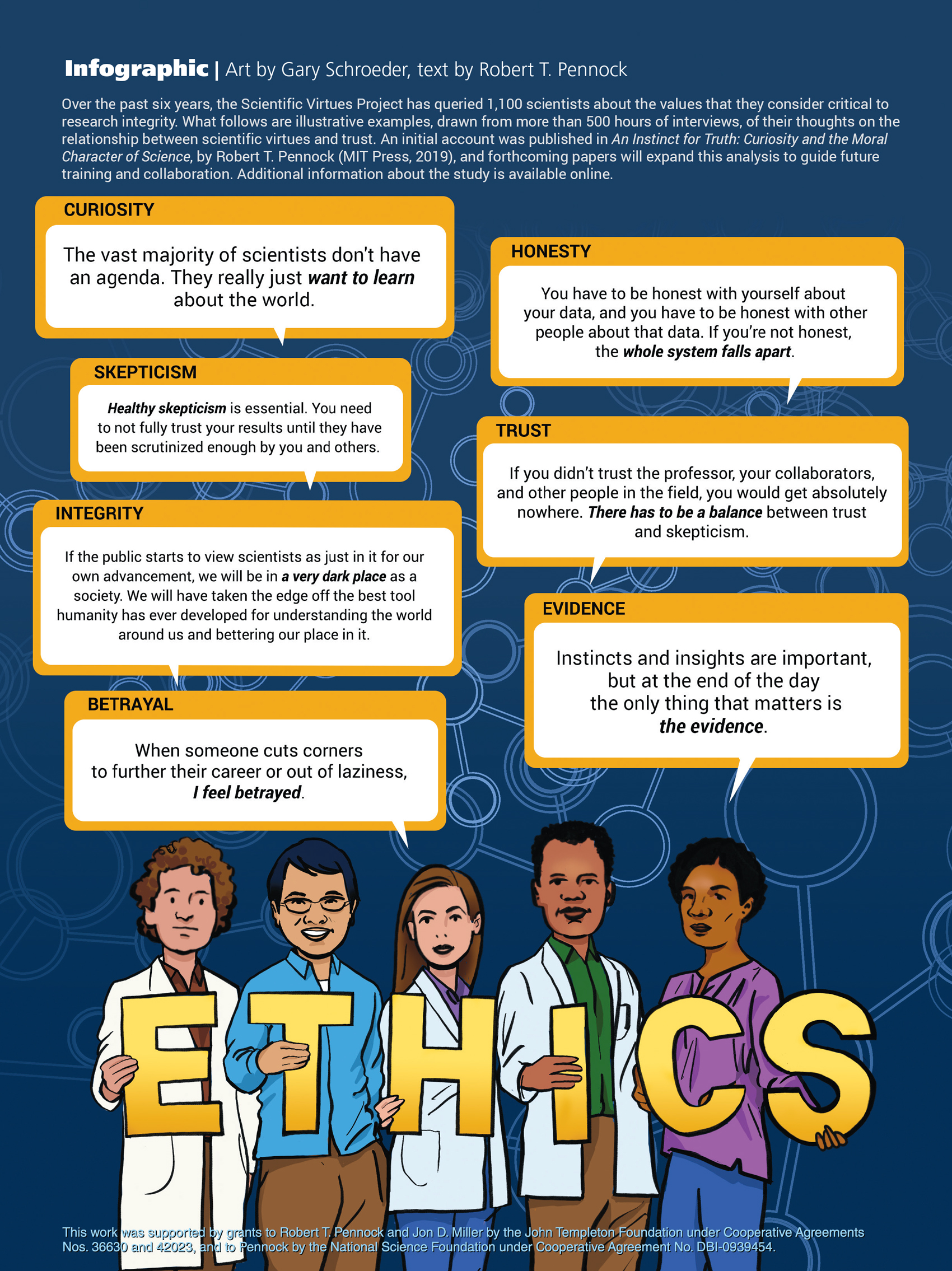
This Article From Issue
July-August 2021
Volume 109, Number 4
Page 202
From a philosophical perspective, we are justified in trusting science to the degree that it is structured with integrity—its various parts and participants must work together to discover truths about the natural world.
What makes scientific results trustworthy are the values that underlie the methods and practices of basic research. This view of scientific ethics is supported by evidence from a national study of scientific ideals.
Over the past six years, the Scientific Virtues Project asked 1,100 scientists to reflect upon scientific values, especially the character virtues that make for excellence in research. Although the survey did not ask directly about trust, many respondents brought it up in relation to the questions about values. A search on the word trust from thousands of pages of more than 500 hours of transcribed interviews returned more than a hundred pages of material. Reviewing these responses revealed some notable patterns. The scientists who mentioned trust were from diverse fields and backgrounds, but their responses demonstrated that they shared an ethos.

These sample excerpts from the interviews highlight some of the ideas and ideals these scientists hold in common and convey the flavor of their reflections. The quotations are extracted from longer comments, so some have been lightly edited for brevity and clarity. Most were excerpted from an explanation, sometimes accompanied by an illustrative example, of the importance of a particular value.
Many of the scientists spoke with dismay about unfounded public distrust of science, but also of the betrayal they feel when real cases of fraud are uncovered. Mostly they brought up the relation between trust and the scientific virtues that are its foundation, such as curiosity, honesty, and skepticism. It is the embodiment of such values that makes science trustworthy, and scientists spoke with passion of how they should be respected and fostered.
We often hear from the critics and deniers of science who try to cast doubt on its findings or on scientists themselves. What scientists themselves think about the ethical basis of trust is less often reported. This infographic is an initial step in letting their voices be heard. An initial account was published in my book An Instinct for Truth: Curiosity and the Moral Character of Science (MIT Press, 2019), and forthcoming papers will expand this analysis to guide future training and collaboration.
Curiosity
The vast majority of scientists don't have an agenda. They really just want to learn about the world.
Skepticism
Healthy skepticism is essential. You need to not fully trust your results until they have been scrutinized enough by you and others.
Integrity
If the public starts to view scientists as just in it for our own advancement, we will be in a very dark place as a society. We will have taken the edge off the best tool humanity has ever developed for understanding the world around us and bettering our place in it.
Betrayal
When someone cuts corners to further their career or out of laziness, I feel betrayed.
Honesty
You have to be honest with yourself about your data, and you have to be honest with other people about that data. If you’re not honest, the whole system falls apart.
Trust
If you didn’t trust the professor, your collaborators, and other people in the field, you would get absolutely nowhere. There has to be a balance between trust and skepticism.
Evidence
Instincts and insights are important, but at the end of the day the only thing that matters is the evidence.
This work was supported by grants to Robert T. Pennock and Jon D. Miller by the John Templeton Foundation under Cooperative Agreements Nos. 36630 and 42023, and to Pennock by the National Science Foundation under Cooperative Agreement No. DBI-0939454.

American Scientist Comments and Discussion
To discuss our articles or comment on them, please share them and tag American Scientist on social media platforms. Here are links to our profiles on Twitter, Facebook, and LinkedIn.
If we re-share your post, we will moderate comments/discussion following our comments policy.